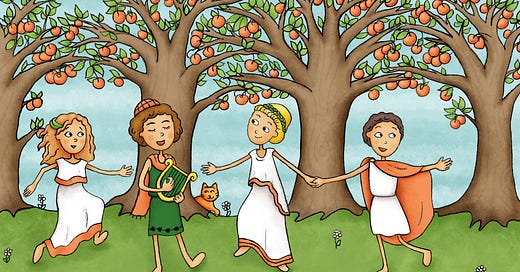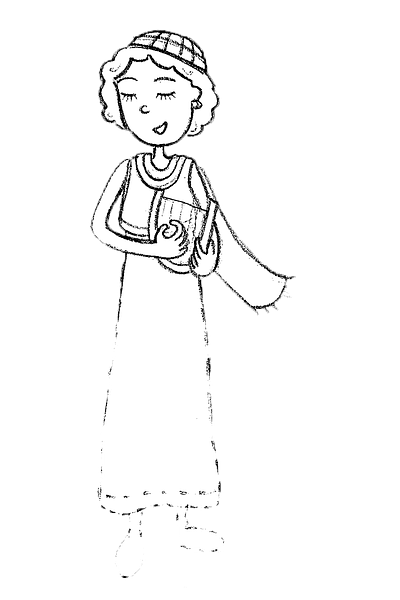Super-superlatives, Rare Word Search, Rhythms and Matching...
Sappho Games and Activity
Dear Classical KIDS,
Last week we introduced you to the remarkable poetess Sappho... today we’ll review her story, introduce some cool aspects of her work and lyrical poetry in general, as well as the very unique way in which some of her ‘work’ has been preserved. It’s a game/activity/lesson all in one!
But first! If you haven’t read the story of Sappho, make sure to do so here (it’s essential for the first worksheet):
Sappho: The Poetess
Dear Classical KIDS, We’ve spent the last couple of weeks discussing the great blind bard, Homer. He was considered the poet, so it only makes sense to follow up with the poetess. Yes! It’s time to talk about the one and only: Sappho. I should let you know that I have a great love for Sappho’s poetry and have been writing/telling anyone who will listen about her for years and years.
Got it? Good! Now enjoy this week’s worksheets, activities and games below!
Match the Picture
Do you remember the Sappho story? Let’s put it to the test! Match the pictures with the part of the story in this worksheet. Put the correct number by the picture, or print it out and see if you can match the two parts.
If you want additional fun, cut up the pictures and see if the kids can put the puzzle back together again.
Rare Words Search
Many of the surviving fragments by Sappho only contain a single word! For example, fragment 169A is simply a word meaning "wedding gifts", and survives as part of a dictionary of rare words.
Rare words are super fun... and they can be difficult to find. Time for some research! Get out the dictionary and have the children look for the rarest word they can find. If they are very excited, they can create their own ‘rare dictionary’. Make a little book and find as many cool words as possible.
Here are some that Frida found:
Palaeoheterodonta
One-key cryptosystem
Ondes Martenot
Yamoussoukro
Mitochondrion
What are some of the rarest words you found? Let us know in the comments!
***A quick note to say THANK YOU to all our wonderful Classical KIDS club members! You make all this possible and your support is greatly appreciated. If you aren’t a member yet, join our warm and growing community today:
Find the Rhythm
Back in the 7th century BC when Sappho was alive, poetry was recited as a performance. In this very community based experience, the poetry was sung with everyone together, dancing. It’s a fun way to move, listen to poetry as well as try to find the rhythm. But it’s harder than it looks! Let’s try it out…
Keep reading with a 7-day free trial
Subscribe to Classical KIDS to keep reading this post and get 7 days of free access to the full post archives.





